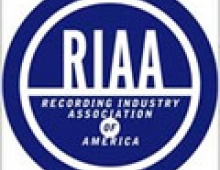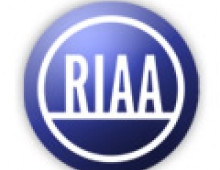
Online music broadcasters sue RIAA
An alliance of online music broadcasters sued the recording industry in federal court Wednesday, alleging major record labels have unlawfully inflated webcasting royalty rates to keep independent operators out of the market.
Webcaster Alliance, an organization claiming some 400 members, filed the suit in U.S. District Court for the Northern District of California, claiming the major labels and the Recording Industry Association of America have maintained a monopoly over their music.
The suit alleges the negotiations for arriving at royalty rates to broadcast songs over the Internet violated federal antitrust laws and seeks an injunction that would prevent the major labels from enforcing their intellectual property rights and collecting royalty payments.
The current royalty rate for broadcasting music over the Internet is 7 cents per performance for each listener accounted for, a rate that has kept small webcasters from entering the market, said Ann Gabriel, president of Webcaster Alliance.
Gabriel's organization would like to see the per performance royalties eliminated. Instead, a flat percentage of commercial webcaster revenues, somewhere between 3 and 5 percent, would be a fair fee to pay, she said.
The RIAA called the suit a ``publicity stunt that has no merit.''
``Record companies and artists have worked earnestly and diligently to negotiate a variety of agreements with a host of new types of radio services, including commercial and noncommercial webcasters,'' the RIAA said in a statement.
The major labels have struck a variety of agreements for webcasting that go beyond the behemoths of the industry, such as AOL, and deal with smaller commercial and noncommercial operations.
SoundExchange, the organization that collects payments on behalf of the music industry and artists, recently struck licensing agreements with satellite radio stations, college Internet radio stations and background music services that send tunes to retail stores.
The suit alleges the negotiations for arriving at royalty rates to broadcast songs over the Internet violated federal antitrust laws and seeks an injunction that would prevent the major labels from enforcing their intellectual property rights and collecting royalty payments.
The current royalty rate for broadcasting music over the Internet is 7 cents per performance for each listener accounted for, a rate that has kept small webcasters from entering the market, said Ann Gabriel, president of Webcaster Alliance.
Gabriel's organization would like to see the per performance royalties eliminated. Instead, a flat percentage of commercial webcaster revenues, somewhere between 3 and 5 percent, would be a fair fee to pay, she said.
The RIAA called the suit a ``publicity stunt that has no merit.''
``Record companies and artists have worked earnestly and diligently to negotiate a variety of agreements with a host of new types of radio services, including commercial and noncommercial webcasters,'' the RIAA said in a statement.
The major labels have struck a variety of agreements for webcasting that go beyond the behemoths of the industry, such as AOL, and deal with smaller commercial and noncommercial operations.
SoundExchange, the organization that collects payments on behalf of the music industry and artists, recently struck licensing agreements with satellite radio stations, college Internet radio stations and background music services that send tunes to retail stores.




















